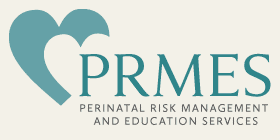I provide continuing education in electronic fetal monitoring, patient safety & human factors, and medical-legal issues for doctors, nurses, and midwives. My primary focus is on multidisciplinary education with physicians, nurses, and advanced practice nurses learning together, at the same time, in the same setting, resulting in improved communication and teamwork.
Current topics include:
Electronic fetal monitoring (EFM)
EFM is the single most common obstetric procedure in the U.S., affecting the lives of more than 8 million moms and babies every year.
Yet nurses and physicians may not be operating with a shared mental model when it comes to interpretation and management. This disconnect can lead to problems with communication and may place families at risk for medical and nursing error.
The seminars and workshops I teach (alone or with co-author Dr. David A. Miller) provide a standardized, evidence- and consensus-based approach to fetal monitoring based on the current recommendations from the National Institute of Child Health & Human Development (NICHD) as well as guidelines and research from professional organizations such as the American College of Obstetrics & Gynecology (ACOG), the Association of Women’s Health, Obstetric & Neonatal Nurses (AWHONN), and the American Academy of Pediatrics (AAP).
The multidisciplinary EFM programs offer nurses, midwives, and physicians a unique opportunity to uncover biases, review the evidence, and develop interpretation and management skills in EFM that can be applied consistently and safely in any clinical scenario.
Oxytocin and uterine activity
Management of uterine activity and stimulants such as oxytocin has become a common legal issue in obstetric malpractice claims. The new NICHD guidelines on uterine activity and tachysystole can be confusing and are often a source of major contention between nurses and physicians. Education programs on this topic include a thorough review of definitions, physiology, and management – providing the basis for interdisciplinary hospital policies that protect patients, promote effective use of uterotonics, and prevent unwarranted allegations of malpractice.
Second stage labor management
What is normal for second stage? When should clinicians use active pushing versus rest and descend, or “laboring down?” How does regional anesthesia affect second stage? How do EFM tracings differ in second stage? Understanding the answers to these questions can mean the avoidance of an unnecessary cesarean section for many patients. Clinicians attending a program on second stage will learn what the evidence and literature supports regarding clinical care during the second stage of labor, including strategies to promote rotation and descent and adequate uterine activity.
Cognitive bias and medical/nursing error
Cognitive scientists know that human error is inevitable, so why is it so difficult for healthcare clinicians to admit to mistakes? This topic provides surprising information about how our brains process information, why it can be easy to miss in the moment things that appear obvious after the fact, and how working together as a team can reduce error and improve clinical judgments for all clinicians regardless of education or experience.
Liability and malpractice issues in medicine and nursing
Over the course of a career it is likely that nurses, midwives, and physicians who work in obstetrics will at some point be involved (either as defendant or witness) in a malpractice action. I offer a unique legal perspective that provides clinicians with an essential “survival guide” to litigation. From documentation and communication at the bedside, to deposition and trial testimony in court, clinicians will understand the litigation process from start to finish and apply a patient safety perspective to risk management. A variety of case studies and clinical focus areas are offered, and courses can be tailored to institutional or organizational needs/objectives.
